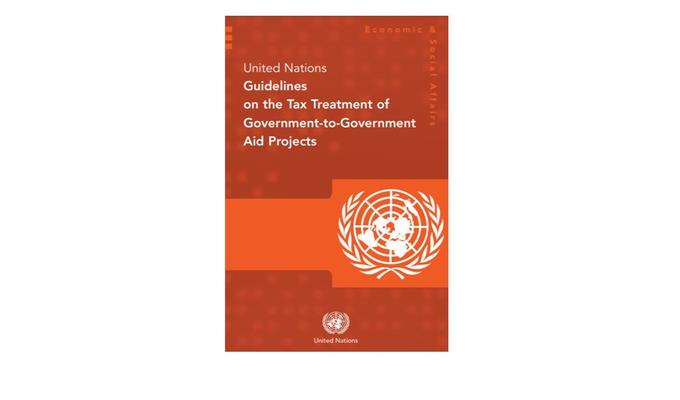Members share experiences on the taxation of official development assistance

Granting of tax exemptions for projects financed by official development assistance (ODA) is a long-standing practice that has been contested within the space of development financing. While developing countries generally need to broaden their tax base as part of their efforts to mobilise domestic resources to invest in the Sustainable Development Goals, the proliferation of special tax exemptions, including tax exemptions related to government-to-government aid projects, poses a serious obstacle. On the other hand, donor countries are increasingly conscious of the difficulties and administrative burden that special tax exemptions for aid projects create for tax authorities in developing countries.
The Addis Ababa Action Agenda, which includes a comprehensive set of measures aimed at addressing the challenges of financing the 2030 Agenda for Sustainable Development, welcomed the “continued efforts to improve the quality, impact and effectiveness of development cooperation” and, in that respect, included a commitment to “consider not requesting tax exemptions on goods and services delivered as government-to-government aid, beginning with renouncing repayments of value-added taxes and import levies.” The topic has increasingly gained attention within the Addis Tax Initiative (ATI) as it is particularly relevant for the implementation of Commitment 3 of the new ATI Declaration 2025, through which ATI members commit to apply coherent and coordinated policies that foster domestic revenue mobilisation (DRM).
On 26 and 28 May 2021, the ATI Consultative Group 3 hosted two webinars to discuss taxation of projects financed by official development assistance. The coordinator of the United Nations Subcommittee on the Tax Treatment of ODA Projects Marlene Patricia Nembhard-Parker and the UN Inter-Regional Advisor on International Taxation Matters Farid Hasnaoui Mardassi presented the recently published Guidelines on the Tax Treatment of Government-to-Government Aid Projects to ATI members. Hege Fisknes, Senior Adviser at the Norwegian Ministry of Foreign Affairs and Sebastiaan Wijsman, Senior Policy Officer at Dutch Ministry of Foreign Affairs shared their country's experience in changing policies to refrain from claiming exemptions or refunds from aid-funded projects. Representing ATI partner countries, Adrien Tocke, Director of Reforms at the Direction générale des Impôts of Cameroon, presented the experience of the country which, since 2019, has made legislative changes to require ODA taxation, but still faces implementation difficulties with donors.
There were further inputs from Joseph Stead and Rachel Morris, experts at the Organisation for Economic Co-operation and Development (OECD), Moses Chamisa, research expert at the African Administration Forum (ATAF) and Anne-Marie Geourjon, expert at the International Monetary Fund (IMF) and programme manager at the Fondation pour les études et recherches sur le développement international (Ferdi). The webinars were moderated by the Co-Coordinators of ATI Consultative Group 3, Hira Nazir (Pakistan) and Benedikt Madl (European Commission), and attended by over 80 representatives of ATI partner countries, development partners and supporting organisations.
As a result, the webinars offered ATI members an insight into the guidelines recently published by the United Nations Committee of Experts on International Cooperation in Tax Matters to support countries considering and negotiating agreements on the tax treatment of government-to-government aid, and facilitated the sharing of experience between ATI development partners, partner countries and supporting organisations to advance reforms. While each donor is free to establish the conditions under which it is willing to provide bilateral aid, it should recognise that tax exemptions create significant difficulties for developing countries and run counter to the objective of strengthening DRM. The UN Guidelines and ATI members emphasised the heightened importance of transparency and accountability in the current global landscape, and the importance of adhering to these key tenets of good tax governance, including in the administration of government-to-government aid.
The full document with the 13 Guidelines on the Tax Treatment of Government-to-Government Aid by the UN Committee of Experts on International Cooperation in Tax Matters can be found here.
The ATI Consultative Group 3 will continue the discussion on this topic and thanks the ATI members for their active participation in the discussions. For more information on upcoming webinars, please refer to the ITC DRM Calendar and follow the ITC on Twitter and LinkedIn.